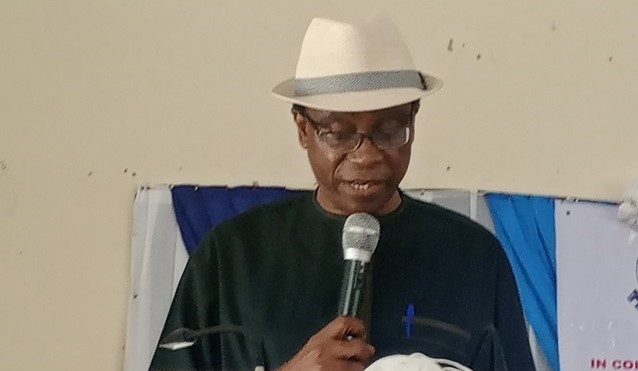Extractivism lies at the base of the climate and food crises. It is propelled by a complex of mentalities and power differentials that are basically self-reinforcing in practice, underwriting and rationalising socio-ecologically destructive modes of organising life through depletion, and non-reciprocity. It builds dependency by entrenching the mindset that nations or territories can only transform their economies through this means.

Extractivism is clearly unsustainable. Sustainable development or even growth in the context of extractivism is an ugly oxymoron. Extractivism was built by colonialism and subjugation and has been sustained by coloniality and forced submission to the forces of capital and socio-ecological exploitation.
Consequent upon these forces, the earth, as we know it, is at great risk and rapidly becoming unsuitable for human habitation. The propensity to extract, consume, exploit and trash has triggered multiple crises including climate change and the smouldering food crisis. The human induced climate chaos is responsible for droughts, floods, sea level rise, coastal erosion, desertification, marked temperature rise and others. These stressors have triggered famines, forced migration and conflicts. The challenge is that there are no signs that humans are ready to take the path of rectitude regarding the exploitation of Nature or to transition to more benign modes of production and consumption.
Platitudes have remained the order of the day, at national, regional, and markedly at multilateral conversations on the issues. This scenario continues to play out because the key discussants have a sneaky belief that whatever catastrophe may be looming will not manifest in their own lifetime. Humans may never have been more selfish and narcissistic since the first human rose from the dust.
The world celebrates the temperature target of 1.5 degrees Celsius as per the Paris Agreement, but a country like Nigeria has already experienced a 1.6 degrees Celsius temperature rise above preindustrial levels. Think about that and tell us if it makes sense for Nigeria to lay any stock on a temperature target that she has already exceeded. What we are facing is an emergency.
We are faced with an acute emergency because we are pressed from all sides by the unfolding crises. Eleven states in northern Nigeria are being challenged by desertification. Communities along our 850 kilometres coastline are losing land as the rising ocean level eats away huge swaths of land yearly. Indeed, many significant cultural landmarks have faded into memory in their watery locations.
Add to this the unchecked and reckless exploitation of territories by extractivist corporations and the resulting oil pollution, deforestation, mining and water stress and it becomes clear why we are faced with a precipitous food crisis. The resilience of our indigenous agricultural system has been challenged in all sectors: farming, fisheries, and pastoralism. The unfolding non-solutions driven by agents of monopoly and favoured by politicians introduce new impediments to resilience building.
Biodiversity loss, genetic engineering, geoengineering, and other challenges are building up intergenerational crises that will not only negatively impact the environment but may probably upend human nature, and the survival of other beings.
We need to school ourselves on the ecological costs of extractivism. Such schools of ecology should provide us with the scaffolds for the construction of just socio-economic relations as humans, communities and nations interact with each other and with Mother Earth. They would be spaces to remind us that there are many individuals, groups and communities who are already taking steps to ensure a liveable future.
We must enact these schools in our streets, village squares and town halls so as to learn together, build together and forge ways forward in solidarity.
Bassey, who is Director, Health of Mother Earth Foundation (HOMEF), spoke at the School of Ecology on Extractivism, Climate Change and Food Crises on March 1, 2023, in Lagos
